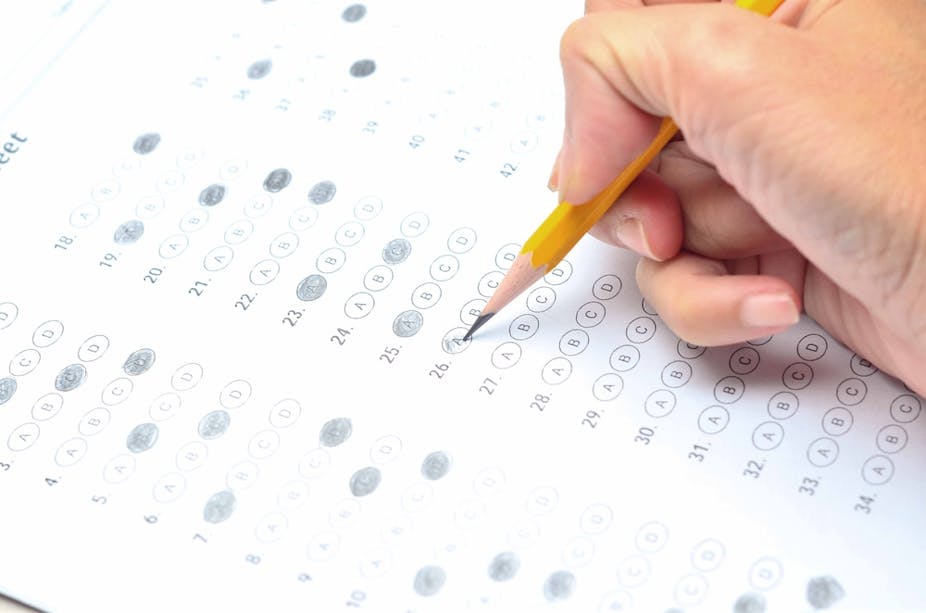As the coalition government’s free schools continue to stir heated debate, the problem of how to maintain and raise standards and quality is front and centre.
To tackle it, MPs have been looking more and more to examples from the US – where two decades of experimentation has thrown up a number of strategies for boosting pupils achievement.
For years now, the two most prominent school reform strategies in the US have been school choice and school accountability. School choice policies break the traditional link between family neighbourhoods and the public school to which children are assigned. Accountability policies, meanwhile, stress public reporting of school performance, usually measured by test scores, graduation or attendance rates. Both approaches have their critics – but school choice remains especially controversial.
One hotly debated policy involves the use of school vouchers – taxpayer-funded payments to families who want their children to attend private schools, mostly schools with religious affiliations.
More than a dozen states and several large cities currently operate voucher programs. In many ways, these programs are simply the education-specific version of a broader trend toward outsourcing the provision of public services to private vendors.
My colleagues and I recently published the results of our study of voucher use in the city of Milwaukee, Wisconsin. Our paper is the first to examine what happens when school vouchers are combined with school accountability.
We found that once private schools were required to report their results to the public, the test scores of their students improved dramatically.
Wisconsin leads the way
Milwaukee operates the oldest voucher program in the US. After beginning in a pilot phase in 1990, the program was subject to an initial evaluation by outside analysts. In later years, it expanded to include new private schools and those with religious affiliations. By 2005, nearly 20,000 students in Milwaukee (nearly a fifth of the surrounding school district) used a public voucher to attend one of more than 100 private schools.
In 2006, our research team began a new state-authorised evaluation of the program. We tracked voucher and comparable public school students up until the 2010-2011 academic year. Although we were required to report differences between public and private school performance overall, we were prohibited from reporting the results for individual private schools.
In 2009, Wisconsin passed a new law requiring all private schools receiving vouchers to report the average test scores of their voucher students. The law took effect in 2010, the last year of our study. This law was similar to the federal No Child Left Behind law governing public schools across the US since 2002.
Because we had been collecting the test scores of students since 2006, our research team was able to examine these scores both before and after private schools in Milwaukee had to follow the same testing and reporting requirements as their public counterparts.
Everybody’s watching
The large increase we observed in voucher test scores could have two explanations, each rooted in the basic fact that under the new law, private school scores were destined to become public for the first time.
The schools could have responded in either of two ways: improving the quality of the education they provided to their publicly funded students, or simply focusing their efforts on test preparation (“teaching to the test”). To the extent that the state exam is a valid and reliable measure of student achievement, improved test scores indicate improved achievement; the two possible school responses appear one and the same.
The chief argument for contracting out public services in local or regional governments is that private firms can supposedly deliver more efficiently than government agencies, who are saddled with cumbersome regulations and civil service requirements. Advocates for school choice in the US (especially for vouchers) also argue that private schools are more adept at providing education to parents with a variety of different academic, vocational or religious preferences for their children.
To these advocates, the very idea of public oversight of private providers is redundant: market forces will ensure that schools will deliver high quality service because customers – parents just as much as outsourcing public agencies – will otherwise just take their money, and children, elsewhere.
But the data we gathered in Milwaukee strongly suggests the market alone does not adequately hold private schools accountable. Had competition between private schools been maximising the quality of education each provided to its voucher students, we would not have observed such a large gain in test scores once schools knew their results would be made public. If the market alone were enough, the schools’ performance would have been optimal beforehand.
Education, even more than most public services, is an extremely complex field. If test scores do not fully measure school quality, they at least provide a consistent metric on which parents, other taxpayers, or government officials can compare all schools.
Our study is only the latest to suggest that accountability laws can improve school performance, at least on the measure of those tests. There may be a role for the market, as voucher supporters argue. But when it comes to providing important public services, it seems what is good for government agencies is good for the private sector too.

